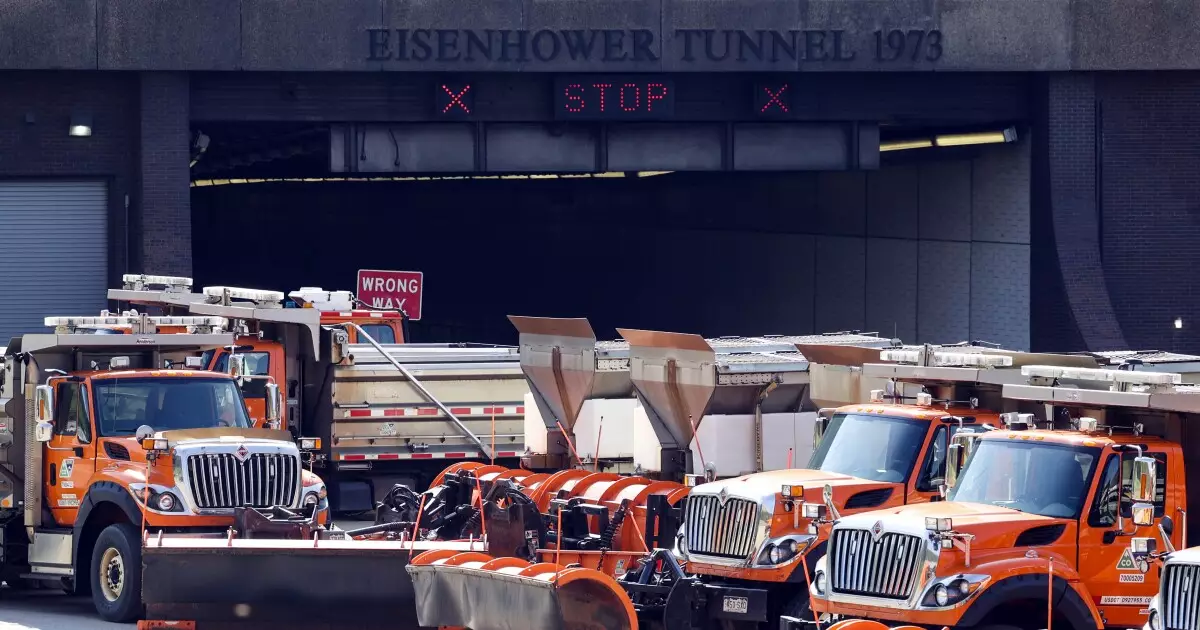In an intriguing twist of fiscal policy, Colorado’s Statewide Bridge and Tunnel Enterprise (BTE) is taking a significant step by auctioning off $212.45 million in revenue bonds. This moment comes amidst a growing tension surrounding the state’s stringent Taxpayer’s Bill of Rights (TABOR), which is proving to be a double-edged sword—one that offers government projects a platform for funding while simultaneously imposing severe restrictions that threaten fiscal stability.
The BTE, a quasi-government entity formed under the FASTER Act in 2009, is tasked with the maintenance and improvement of the state’s infrastructure, explicitly focusing on bridges and tunnels. Recently expanded by legislation in 2021, the BTE has become embroiled in legal challenges resulting from institutional pushback against the revenue mechanisms it employs, particularly those labeled as “fees.” As political debates converge around the interpretations of TABOR, it becomes imperative to scrutinize whether this legal and fiscal battleground truly serves the interests of the taxpayers or merely stifles the growth and maintenance of vital infrastructure.
The Role of TABOR in Infrastructure Funding
TABOR is a controversial constitutional amendment that has frustrated residents and politicians alike since its passage in 1992. Its primary function is to limit government spending and keep tax hikes in check without direct voter approval. The BTE is currently leveraging TABOR’s loopholes, sidestepping direct taxation by labeling its funding collection as fees. Critics argue that this approach effectively undermines the legislative spirit of TABOR, diluting voter intent and transparency. In essence, the push against TABOR reflects a structural failure of governance—a response to a need that the amendment, in its rigid form, fails to accommodate.
In the recent court case initiated by Americans for Prosperity, the legal contention revolves around claims that the state is misusing its enterprise status to bypass the voter approval process, creating a two-tier system of taxation that is inherently undemocratic. This systemic manipulation not only challenges the integrity of TABOR but also raises vital questions about fiscal accountability and the role of government—whether it is to serve the needs of its citizens or to operate as a self-sustaining entity that prioritizes revenue generation.
Financial Implications and Long-Term Consequences
On the surface, the BTE’s projected revenues—elevated by bridge safety surcharges and newly instituted fuel impact fees—appear robust. With estimates reaching upwards of $116 million by FY2025 through vehicle registration fees and over $27 million from targeted fuel fees, the BTE seems positioned for financial stability. But this atmosphere of fiscal optimism is deceptive, existing as it does against the backdrop of ongoing litigation and the looming threat of a TABOR backlash.
The ramifications of TABOR’s strictures extend beyond mere fiscal constraints. Colorado is currently facing a projected $1 billion budget shortfall for the fiscal year 2026, a direct outcome of TABOR’s limits. The BTE’s need for accruing bonds to sustain its operations could be jeopardized if these alterations to the revenue streams fail to achieve legal sanction. Moreover, the ongoing expanse of the state’s infrastructure needs begs the question: Can Colorado truly afford to finance its future under the confines of such a restrictive framework?
Political Backlash and Legislative Response
As the court deliberates on these issues, state lawmakers, particularly those in the Democratic-controlled legislature, are calling for a re-examination of TABOR’s fundamental constitutionality—an act seen as a desperate yet necessary maneuver to regain control over fiscal policy. Representative Sean Camacho’s remarks about TABOR hindering effective governance resonate with a growing faction of Coloradans who are enduring the consequences of crumbling transportation networks and diminished public resources.
This political discourse suggests a potential paradigm shift, paving the way for a reformulation of fiscal policies that match the evolving needs of Colorado’s citizens. However, the question remains: Will the effort to reform TABOR lead to meaningful change, or merely serve as a political talking point for those seeking to capitalize on public dissatisfaction?
The Future of Colorado’s Infrastructure Financing
As the BTE confronts its impending bond sale, eyes are on the outcomes of both the legal and political battles surrounding TABOR. The precarious tightrope walked by state officials, balancing immediate funding needs against the long-term consequences of undermining voter trust, brings to light the urgent need for reevaluation. It stands to reason that unless a more balanced approach is found, inflexible laws such as TABOR may render Colorado’s infrastructure and fiscal prospects vulnerable for years to come.
Exploring the implications of this ongoing struggle reveals a fragile relationship between governance, taxpayer rights, and the necessary progression of essential state services. The upcoming bond sale and unresolved litigation have set the stage for a critical juncture in how Coloradans will approach their infrastructure financing in the years to come. Are we ready to tackle such complexities head-on, or will we remain paralyzed by restrictive legal frameworks? Time will tell, but the future of Colorado’s infrastructure hinges on the decisions made today.

